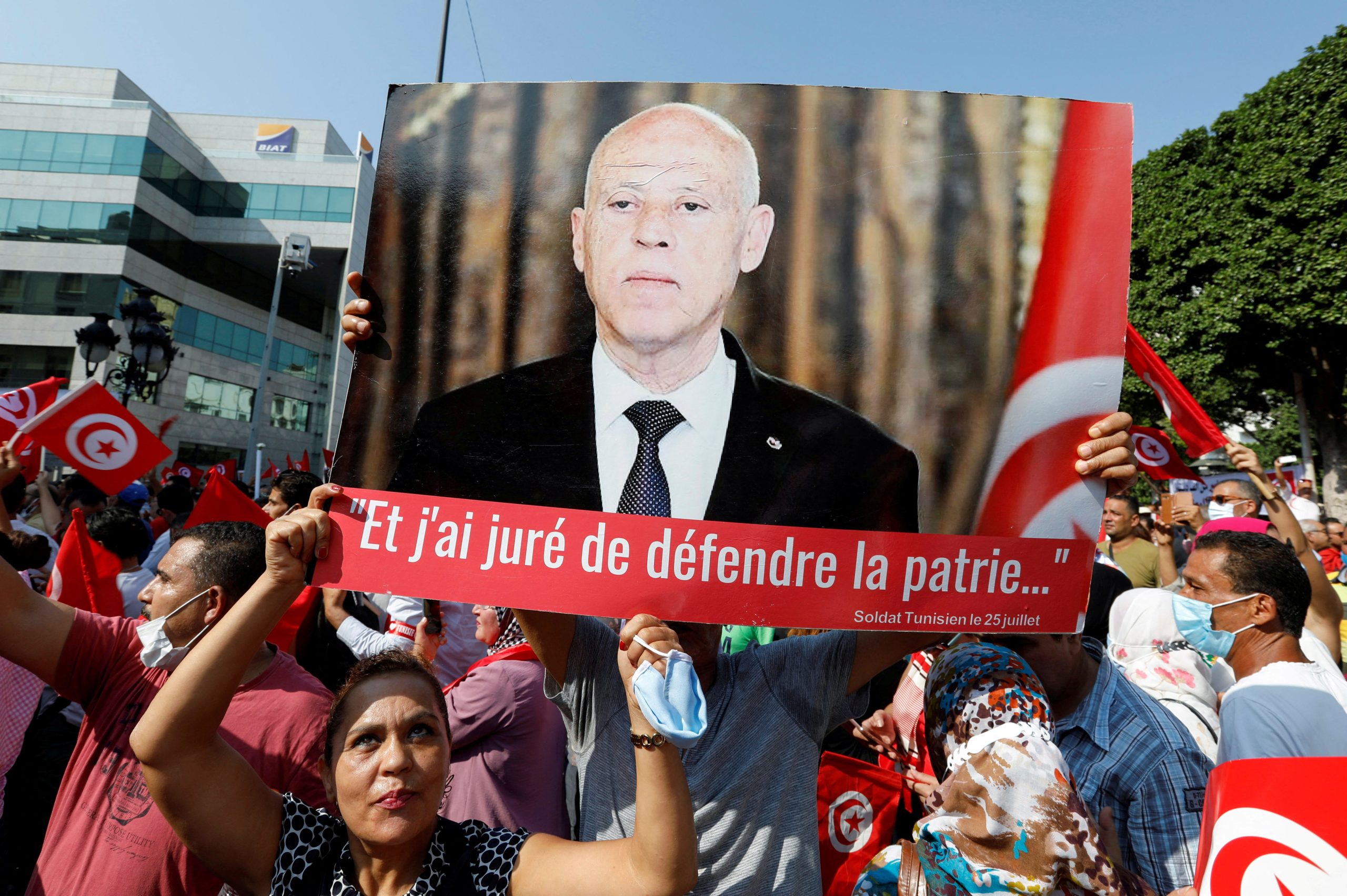
Tunisian Coup President Declares Referendum on Constitutional Changes
Tunisian president Kais Saied, who garnered world headlines in July after announcing the dismissal of the country’s parliament and assuming the authority to rule by decree—unconstitutional actions widely characterized as a coup d’etat—has announced that the country will hold a referendum on proposed changes to the constitution on July 25, 2022.
In an address to Tunisian state-run television on Monday, Saied announced the date of the referendum, exactly one year after his dismissal of the parliament. He claimed that the legislative body would not return to session until new parliamentary elections on Dec. 17, 2022, indicating that he would continue to rule by decree until that date.
Prior to the coup, Saied had criticized Tunisia’s 2014 constitution, arguing that its dual presidential-parliamentary system had created incentives for government infighting and corruption. After securing power in July, he announced a three-month process, to take part from January until March 2022, to suggest changes and draft a new constitution in its place. The two documents are slated to be voted on in the July 2022 referendum.
Although such a process is not sanctioned by the Tunisian constitution, Saied, a professor of constitutional law prior to his 2019 election, defended it by arguing that sovereignty was fundamentally vested in the Tunisian people rather than the constitution itself. In spite of this, Tunisian opposition parties, including the moderate Islamist “Ennahda” movement, described the proposed framework for changes as unconstitutional and illegal.
The coup in July 2021 came as a surprise to many outside observers who had previously regarded Tunisia as the sole unambiguous success story of the 2011 “Arab Spring” protest movement. That movement began in Tunisia after a street vendor, Mohamed Bouazizi, lit himself on fire in response to government corruption; it ultimately resulted in earth-shaking consequences across the region, including the toppling of several governments and the start of two major civil wars.
Saied defended his actions by citing the successful overthrow of Tunisia’s dictator, Zine el-Abidine Ben Ali, in early 2011, claiming that his actions were necessary to “correct the path” of Tunisian democracy.
In spite of the decidedly undemocratic character of Saied’s actions, his personal popularity within Tunisia remains high. The country’s previous government, though largely democratic, had experienced years of political squabbling, during which its economy experienced prolonged stagnation, as well as a sharp decline during the coronavirus pandemic.
Trevor Filseth is a current and foreign affairs writer for the National Interest.
Image: Reuters


